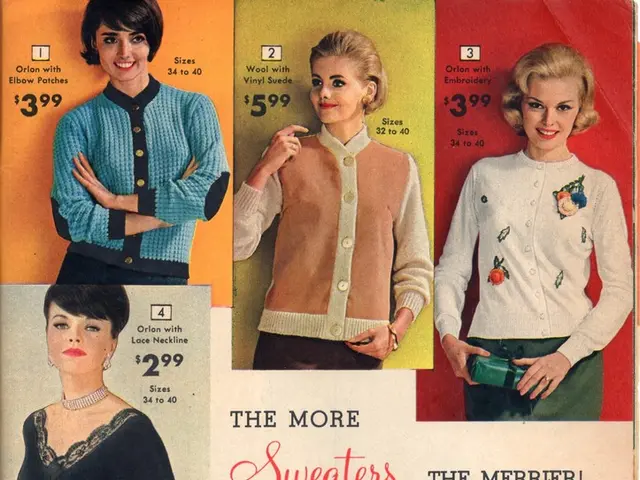Actress Margot Robbie engulfed in a contentious remark concerning "The Wolf of Wall Street":
In the world of cinema, Martin Scorsese's The Wolf of Wall Street continues to stir conversations, ten years after its release. Starring Leonardo DiCaprio as Jordan Belfort, the film tells the story of a stockbroker's rise and fall marked by excess, ambition, and corruption.
The film, which also features Margot Robbie as Naomi Lapaglia, has been a subject of debate, particularly regarding its portrayal of toxic masculinity. Certain fans have reduced Robbie's character to 'the mini-skirt scene,' but Robbie herself has warned against the uncritical identification with the film's universe. She points out the exaltation of money, omnipotence, and cruelty as problematic.
Robbie's words serve as an invitation to reflect and distinguish cinematic enjoyment from critical fascination with the power fantasy The Wolf of Wall Street can feed. She does not disavow her experience or the film's final result, which she describes as 'brilliant.'
Colin Farrell, in the same interview, compared the attitude of admirers of The Wolf of Wall Street to that of the character Patrick Bateman from American Psycho. The problem, as Robbie sees it, is that the culture of 'entrepreneurs' finds in the film a backing to justify aggression and domination as legitimate strategies.
Critics warned at the time of the film's release that it could be misinterpreted as a handbook for idiots. Scorsese never intended to glorify his characters, but the staging turns excess into spectacle, making The Wolf of Wall Street a symbol among bankers and ambitious youth.
Success and transgression are shown as supreme virtues in The Wolf of Wall Street. The 'Sell me this pen' scene, for instance, provides phrases and attitudes for virile communication, marginalizing the feminine. Some people use Belfort's discourse from the film as motivational material, illustrating how the film has become a sort of behavior manual for some.
The paradox of satire is that the more effective the denunciation, the greater the risk that a part of the audience will end up celebrating what should be a cause for criticism. Over the past decade, The Wolf of Wall Street has been interpreted by some sectors as an accidental manifesto of success and power, especially among young people who perceive it as a model of 'alpha male.'
The statements made by Robbie and Farrell about The Wolf of Wall Street have sparked a new discussion about the film's influence and its role as a symbol of toxic masculinity. Some media figures have seen the film as a symbolic manifesto of an 'alpha male' because it vividly portrays traits linked to dominance, excess, and aggressive confidence exemplified by Jordan Belfort's character.
However, over the past decade, awareness of this symbolism has evolved with growing critiques of toxic masculinity. The discourse has shifted from admiration of such alpha traits to more nuanced debates about their social and moral impacts. The Wolf of Wall Street appears among the so-called 'red flag movies' on Reddit and TikTok, revealing potential misogynistic or problematic attitudes in those who cite it as a favorite.
Robbie's recent statement that men who consider The Wolf of Wall Street their favorite could be showing a problematic view of masculinity has added fuel to the fire. She warns women who like the film to be careful, as it could be sexy but that men who like it should pay attention.
Read also:
- Today's most impactful photographic moments
- Support for Eric Adams in The Post's Letters to the Editor on August 13, 2025
- Roosting Shark and Rambunctious Red Squirrels: Unconventional House Rental in Yorkshire Involving Aquatic Marvel, Squirrely Mayhem, and Mystical Planning Regulations
- Legal Dispute Dismissed with Humor: Supreme Court Laughs off Another Civil Matter Mislabeled as Criminal Prosecution







